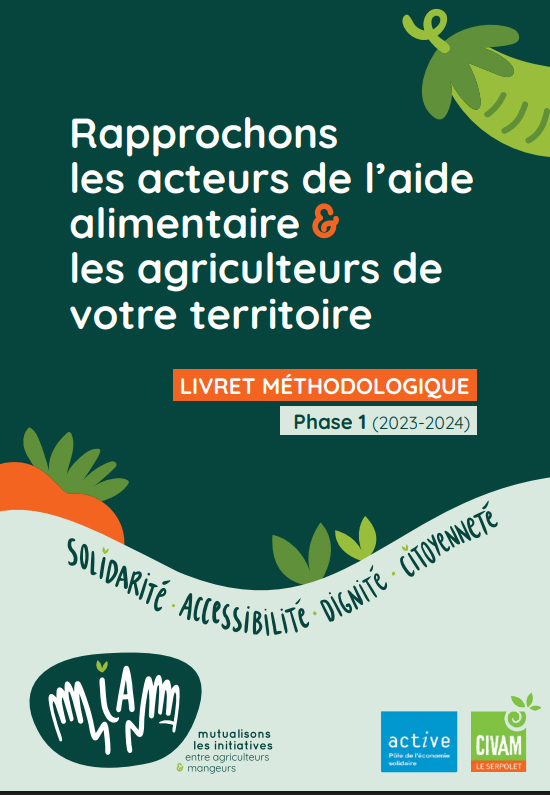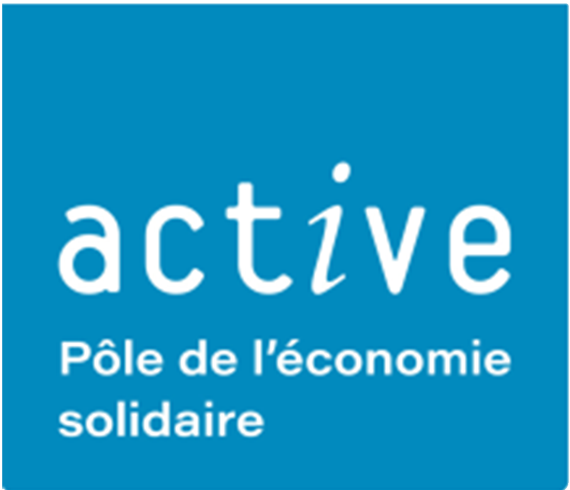A local food initiative is a project that can be set up at different levels (commune, inter-commune, country, PETR, PNR, even département), bringing together a number of players from different spheres to address the key issues of local, healthy and sustainable food (economic, social, environmental and territorial cohesion).
Where do they come from?
Short, local circuits, third-party food production sites, more secure entrepreneurial and salaried farming models, processing workshops, awareness-raising about healthy, sustainable food, the fight against food waste and the recycling of bio-waste… New France is bursting with initiatives. They are carried out in a variety of ways: by individual citizens, associations, businesses, local authorities… or even in cooperation between public and private structures.
To support and coordinate these initiatives, groups of communes, project territories (PNR, Pays, PETR, etc.) and local authorities are making the most of their skills. Public procurement is a lever for increasing local sourcing. Economic development and urban and regional planning skills enable them to support and develop agricultural activity. Water, environmental and waste management policies ensure sustainability. Their social and urban policy skills enable them to take action on food accessibility, etc.
Various initiatives and players in the agriculture and food sectors have been brought together under the umbrella of the Démarches Alimentaires de Territoire (regional food initiatives). By 2023, PQN-A will have identified around fifty such initiatives in the region. More and more of them are being awarded the “Projet Alimentaire de Territoire” (PAT) label by the French government.
PQN-A is the coordinator of the “Démarches Alimentaires de Territoire” (DAT) network, and has identified eight main challenges to which DATs provide concrete solutions:
- Structuring local channels and circuits: from seed to compost
- Preservation of agricultural land, installation and transfer of farms to ensure relative diversity and availability of local supply.
- Social justice and quality food for all
- Environmental protection, biodiversity and water conservation, climate change mitigation and adaptation
- Sharing governance over food and agriculture with all stakeholders, first and foremost consumers and farmers.
- Supplying collective (often public) catering with organic, quality and local products
- Education, training and awareness-raising on the link between food, health and the environment
- Promoting local agricultural and culinary heritage
Why a panorama of local food initiatives?
A regional food initiative is complex to manage: it takes into account many issues, and brings together a variety of players to implement it. The aim of this document is to provide an overview of food and farming initiatives in the Nouvelle-Aquitaine region. It is designed to help all those involved in the process to :
- Knowing the different food processes and their specificities
- Inspiration for your own existing or emerging approach
- Contact project managers by telephone or e-mail to discuss practices, propose cooperative ventures, etc.
Do you have a question about a specific approach? Contact the people in charge directly using the directory
What’s the difference between initiatives and approaches?
- A territorial food initiative is a set of projects designed to provide a coherent, cross-functional and strategic response to several issues linked to sustainable agriculture and food. This approach is often led by a public player, although it can also be led by a private player, and brings together several players, including those involved in food initiatives (a PAT is a territorial food approach, as well as a local school catering supply project led by the relevant local authority).
- A sustainable food initiative is a project that aims to address one or more issues related to sustainable agriculture and food (e.g. a project to collect food waste by bicycle in an urban environment, a new model for setting up farmers as employee-entrepreneurs…).
Initiatives and approaches benefit from cooperation! That’s why PQN-A has joined forces with a number of network heads to produce publications detailing the lessons learned by network players, based on nationwide surveys and its own experience as a resource center. Find them below.
source : https://pqn-a.fr/fr/ressources/guides-et-outils/annuaire-des-demarches-alimentaires-de-territoire



![[𝙒𝙀𝘽𝙄𝙉𝘼𝙄𝙍𝙀 1 “𝘼𝙄𝘿𝙀 𝘼𝙇𝙄𝙈𝙀𝙉𝙏𝘼𝙄𝙍𝙀 𝙄𝙏𝙄𝙉𝙀𝙍𝘼𝙉𝙏𝙀”] [𝙒𝙀𝘽𝙄𝙉𝘼𝙄𝙍𝙀 1 “𝘼𝙄𝘿𝙀 𝘼𝙇𝙄𝙈𝙀𝙉𝙏𝘼𝙄𝙍𝙀 𝙄𝙏𝙄𝙉𝙀𝙍𝘼𝙉𝙏𝙀”]](https://projet-echop.eu/wp-content/uploads/2024/11/468268246_983265713825050_1527517178949717196_n-853x535.jpg)